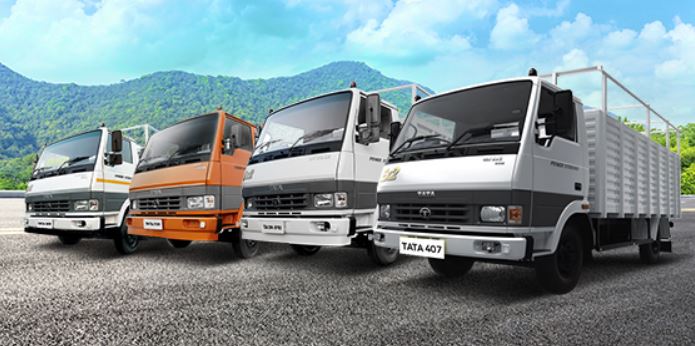The Wheels of Logistics – Exploring the Significance of Different Truck Types
Trucks are the backbone of logistics, serving as the workhorses of transportation for a wide range of goods and materials. With various types of trucks available, each designed to meet specific cargo requirements, the logistics industry relies on these vehicles to move goods efficiently and reliably.
Read this detailed article by one of the best Tata Motors dealers in Gurgaon –
Significance
The significance of understanding the different types of trucks in logistics lies in the efficient and effective transportation of goods.
Cargo Adaptability
Each type of truck is designed to accommodate specific cargo requirements. By having a comprehensive understanding of truck types, logistics professionals can select the most suitable option for transporting different goods. This ensures that the cargo is properly secured, protected, and transported in a manner that meets its unique needs.
Operational Efficiency
Choosing the right truck type enhances operational efficiency. By matching the cargo size, weight, and transportation requirements to the appropriate truck, logistics companies can optimize load capacity and maximize fuel efficiency.
Specialized Handling
Certain cargo requires specialized handling and transportation conditions. For example, perishable goods necessitate refrigerated trucks to maintain specific temperature ranges. Understanding specialized truck types allows logistics professionals to ensure the safe and reliable transportation of sensitive and fragile cargo, such as chemicals, pharmaceuticals, or livestock.
Timely Deliveries
Selecting the appropriate truck type based on cargo characteristics and transportation distance contributes to timely deliveries. Properly matching the truck’s capabilities with the cargo’s requirements minimizes delays and optimizes the delivery schedule, meeting customer expectations and maintaining the integrity of the supply chain.
Safety and Compliance
Different types of trucks have specific safety features and regulatory requirements. Being knowledgeable about truck types allows logistics professionals to ensure compliance with safety standards and regulations specific to each type of cargo.
Customer Satisfaction
By utilizing the right type of truck for specific cargo needs, logistics companies can provide a higher level of service to their customers.
Some Commonly Used Types Of Trucks In Logistics
Whether you’re a logistics professional or simply curious about the logistics world, understanding these truck types listed by Tata Tipper Truck Dealers in Chandigarh will give you valuable insights into the machinery that drives global supply chains.
- Dry Van Truck – Dry van trucks, also known as box trucks or trailers, are the most common type of truck in logistics. These trucks have an enclosed cargo area, typically made of aluminum or fiberglass, which protects goods from weather conditions and theft. Dry van trucks are versatile and can transport a wide range of goods, including packaged goods, electronics, furniture, and more.
- Flatbed Truck – Flatbed trucks have an open-top cargo area with no sides or roof. They are used for transporting large and oversized goods, such as construction materials, machinery, lumber, and heavy equipment. Flatbed trucks allow for easy loading and unloading using cranes or forklifts, making them suitable for handling irregularly shaped or bulky cargo.
- Refrigerated Truck (Reefer Truck) – Reefer trucks are equipped with a refrigeration unit and insulated walls, allowing for temperature-controlled transportation of perishable goods. They are commonly used for transporting frozen or refrigerated items, including food products, pharmaceuticals, and sensitive materials that require specific temperature conditions to maintain their quality and freshness.
- Tanker Truck – These are specifically engineered to transport liquids, gases, or bulk powders. They have specialized tanks with tight seals to prevent leakage. Tanker trucks are commonly used for transporting petroleum products, chemicals, gases, milk, water, and other liquid or bulk materials.
- Dump Truck – Dump trucks are primarily designed for transporting loose materials, such as sand, gravel, dirt, or construction debris. They feature a hydraulic lift mechanism that allows the cargo bed to be tilted and emptied at the desired location. Dump trucks are commonly seen at construction sites, mining operations, and waste disposal.
- LTL (Less-than-Truckload) Truck – These are best for transporting smaller shipments that do not require a full truck’s capacity. They consolidate multiple smaller shipments from different customers into a single truck to maximize efficiency and reduce costs. LTL carriers specialize in managing and coordinating these smaller shipments to optimize delivery routes.
- Specialty Trucks – In addition to the standard truck types, there are various specialty trucks tailored for specific purposes. This includes tow trucks for hauling disabled vehicles, car carriers for transporting multiple cars, livestock trucks for transporting animals, and more.





